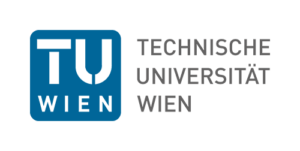The Technische Universitaet Wien (TU Wien), a public university in Austria, is represented in this consortium through its Energy Economics Group at the Institute of Energy Systems and Electric Drives. The Energy Economics Group’s key research areas are:
• Dissemination and integration strategies for renewable and new energy systems
• Energy modelling, forecasting and analysis of energy policy strategies
• Competition in energy markets (liberalisation vs. regulation)
• Sustainable energy systems and climate change
The Energy Economics Group at TU Wien, employing a permanent scientific staff of about thirty people with expertise across all disciplines necessary to assess the impact of energy policy initiatives at the European level, has managed and carried out many international and national research projects funded by the European Commission, national governments, public and private clients.
The Energy Economics Group keeps up many national and international co-operations and has been coordinating several EU-projects in the topical area of renewable energy (e.g. Green-X, GreenNet, Invert, futures-e, beyond2020, ENTRANZE). Besides, contributions have been given to many other research and consultation projects on European level as a core partner in the field of renewable energy with its keen expertise in the area of energy modelling and energy policy strategies (e.g. FORRES 2020, OPTRES, RE-Shaping) as well as grid integration and sustainable bioenergy use in particular.
The research group is at the forefront of discussion on energy policy instruments for the enhanced deployment of renewable energies at the European level as well as at global scale. It substantially contributed to the assessment of the effectiveness and efficiency of supportJust like administratively set support, auction-allocated su... schemes for renewable energies either by conducting ex-post or ex-ante evaluations.
Consequently, to facilitate prospective assessments and scenario elaboration, a broad set of in-door models have been developed by TU Wien. One of the most prominent tools in this respect is the Green-X model. This model allows performing a detailed quantitative assessment of the RES deployment until 2030 in a real-world policy context at national and European level. It has been successfully applied for the European Commission within several tenders and research projects to assess the feasibility of “20% RES by 2020” and for assessments of RES developments beyond that time horizon (up to 2050). The model Invert/EE-Lab covers heating and cooling energy demand and supply in buildings and thus provides a substantial complementary analysis tool for this end-use field.
Visit the website

Contacts
Jasper Geipel
geipel [at] eeg.tuwien.ac.at
Tel: +43-1-58801-370369
Fax: +43(0)-1-58801-370397
Gustav Resch
resch [at] eeg.tuwien.ac.at
Tel: +43-1-58801-370354
Fax: +43(0)-1-58801-370397
Website
